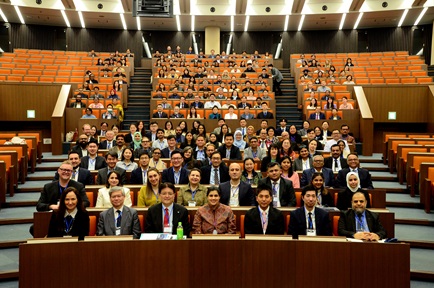AI and Hyper-Personalisation: Transforming Consumer Engagement
On 6 November 2024, the NBS Knowledge Lab hosted an illuminating webinar on how AI is revolutionising consumer engagement through hyper-personalisation. Moderated by Prof Gemma Calvert from NTU Singapore’s Nanyang Business School (NBS), the session featured industry leaders sharing groundbreaking insights: Mr Kishore Parthasarathy from Meta Singapore; Mr Krishnan Menon of R/GA; Asst Prof Chen Yu Peng from NBS; and Mr Shalu Wasu, Co-Founder of gimmefy.ai.
Key Takeaways for Marketers
- Start small with existing tools and scale as you learn.
- Use AI to humanise interactions, balancing data insights with emotional resonance.
- Consider explainability in AI models to build trust and fairness in targeting.
As consumer expectations for tailored experiences soar, AI is enabling brands to engage individuals in ways previously unimaginable. Referencing across the Meta family of products, Mr Parthasarathy noted, “Recommendations – whether for feeds or videos – have become highly personalised.” He shared that Meta’s advancements in AI-driven recommendations have significantly improved engagement, with time spent on Facebook increasing by 8% and Instagram by 10% this year. These improvements reflect how AI is not just enhancing user experiences but also delivering higher returns for advertisers.
Mr Menon highlighted the transformative potential of AI in B2B marketing. He described how generative AI platforms are now streamlining complex processes, such as tailoring sales presentations to specific clients. Mr Menon referenced an inspiring example where an AI-powered content repository automatically created customised product videos and case studies, replacing the need for labour-intensive manual efforts. “The potential is huge,” he said, envisioning creative applications like personalised LEGO minifigures.
Mr Shalu Wasu expanded on the theme, explaining how AI makes hyper-personalisation scalable. “Hyper-personalisation isn’t a new concept. We’ve always aimed to achieve it. What’s changed now is that it’s finally possible to do it at scale, quickly, easily, and affordably,” he said. He drew an analogy to the evolution of communication technology, likening AI’s impact on personalisation to how WhatsApp revolutionised long-distance calling. Mr Wasu emphasised that AI empowers brands to create truly unique messages that authentically reflect both the individual consumer and the brand's identity.
Asst Prof Chen Yu Peng introduced a compelling use case for AI in targeted promotions. He explained how online grocer Redmart could use AI to optimise discount strategies, moving beyond basic A/B testing to an approach that tailors offers to individual customers. Highlighting the potential of AI, Mr Shalu Wasu remarked, "AI transforms A/B testing into A-Z testing, creating an infinite number of options for greater customisation." By training neural networks on customer data, businesses can predict which discount would yield the highest profitability for a specific profile. However, Asst Prof Chen also highlighted the ethical challenges, noting the importance of developing explainable AI models to ensure fairness in targeted marketing.
Mr Parthasarathy addressed concerns about echo chambers, often associated with personalised content. While platforms like Instagram are designed to help users discover new interests, he acknowledged the importance of balance, stating, “When we interact with AI, we expect its responses to feel humane and relevant.” He pointed to tools that allow users to manage their feeds, ensuring that personalisation doesn’t limit exposure to diverse perspectives.
The discussion concluded with a forward-looking view on how AI might assist consumers in decision-making. From choosing insurance policies to planning vacations, AI could act as a trusted assistant, empowering individuals to make informed, personalised choices. Mr Menon added that tools like digital twins allow marketers to simulate scenarios, test strategies, and refine approaches before implementation, making campaigns more efficient and impactful.
Watch the panel discussion here:







